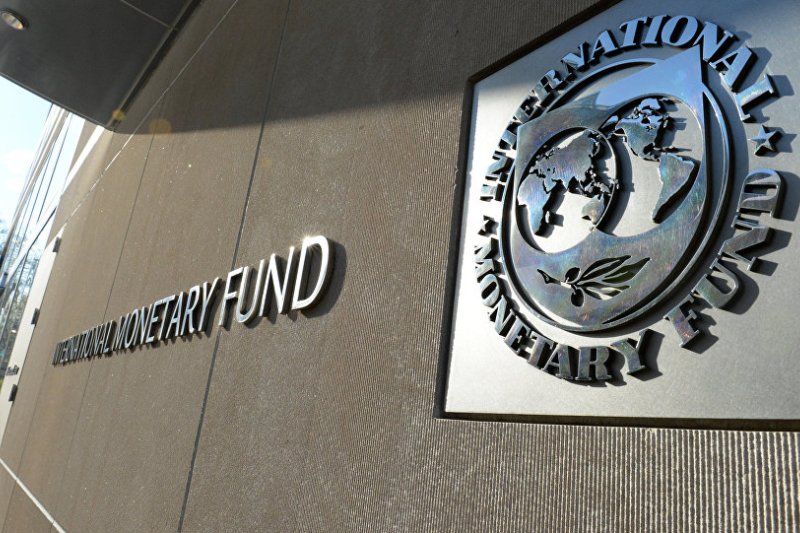IMF Warns of ‘Major Negative Shock’ from Trump’s Tariffs
Donald Trump’s tariffs have unleashed a “major negative shock” into the world economy, the International Monetary Fund has said, as it cut its forecasts for US, UK and global growth.
In a stark assessment of the impact of the US president’s policies, as global finance ministers prepare to meet in Washington, the IMF said: “We expect that the sharp increase on 2 April in both tariffs and uncertainty will lead to a significant slowdown in global growth in the near term.”
Publishing the latest edition of its World Economic Outlook, the Washington-based lender cut its forecast for global GDP growth to 2.8% for this year – 0.5% weaker than it was expecting as recently as January.
The IMF said that while its forecasts had been prepared on the basis of current trade policy, “intensifying downside risks dominate the outlook”.
Its forecasts show every major economy being hit, with the UK expected to grow by 1.1% this year, down from 1.6% predicted in January. The IMF expects a sharper deterioration for the US, from 2.7% to 1.8%.
Responding to the UK downgrade the chancellor, Rachel Reeves, highlighted the fact that the IMF still expected it to be the “fastest-growing European G7 economy” in 2025.
But she added: “The report also clearly shows that the world has changed, which is why I will be in Washington this week defending British interests and making the case for free and fair trade.”
Reeves will meet her US counterpart, Scott Bessent, for the first time on the sidelines of the meeting and is expected to press the UK’s case for reduced tariffs.
As its spring meetings kick off, the IMF said that even after Trump’s “pause”, which suspended punitive “reciprocal tariffs” on a string of countries, trade barriers were at the highest level in a century.
Given the lack of clarity about the future direction of the policy, it predicted that companies throughout the global economy were likely to respond by cutting spending.
“Faced with increased uncertainty about access to markets – their own but also those of their suppliers and customers – many firms’ initial reaction will be to pause, reduce investment, and cut purchases. Likewise, financial institutions will re-evaluate their credit supply to businesses,” it said.
“The combined increased uncertainty and resulting tightening of financial conditions are a global negative demand shock and will weigh on activity.”
The IMF added that emerging economies may be hit especially hard, as “unfavourable global financial conditions” make it harder for them to service their debts – a situation that could be exacerbated by overseas aid cuts.
The UK recently announced a historic cut to its aid budget, to fund defence spending, and Trump is battling court action as he attempts to dismantle USAID.
“More limited international development assistance may increase the pressure on low-income countries, pushing them deeper into debt or necessitating significant fiscal adjustments, with immediate consequences for growth and living standards,” the IMF said.
As finance ministers prepare to meet, the IMF called for coordinated action to reduce trade tensions, restructure low-income countries’ debts, and “address shared challenges”. It is unclear what role the US could take in any such discussion, however, given its commitment to an “America first” approach.
With stock markets on Wall Street resuming their slide on Monday, the IMF expressed concern in the report about the shock waves unleashed in financial markets by Trump’s trade policies – and said worse may be to come.
In particular, it points to the risk of “strong volatility” in currency markets, which “may be difficult to navigate, especially for emerging market economies”.
The dollar has hit a three-year low, as Trump issued further criticism of Jay Powell, the chair of the Federal Reserve, calling him “Mr Too Late” for failing to cut interest rates.
The IMF said the probability of a recession in the US had increased to nearly 40%, higher than its forecast of 25% made in October, the month before Trump’s election victory.
(Source: The Guardian)













